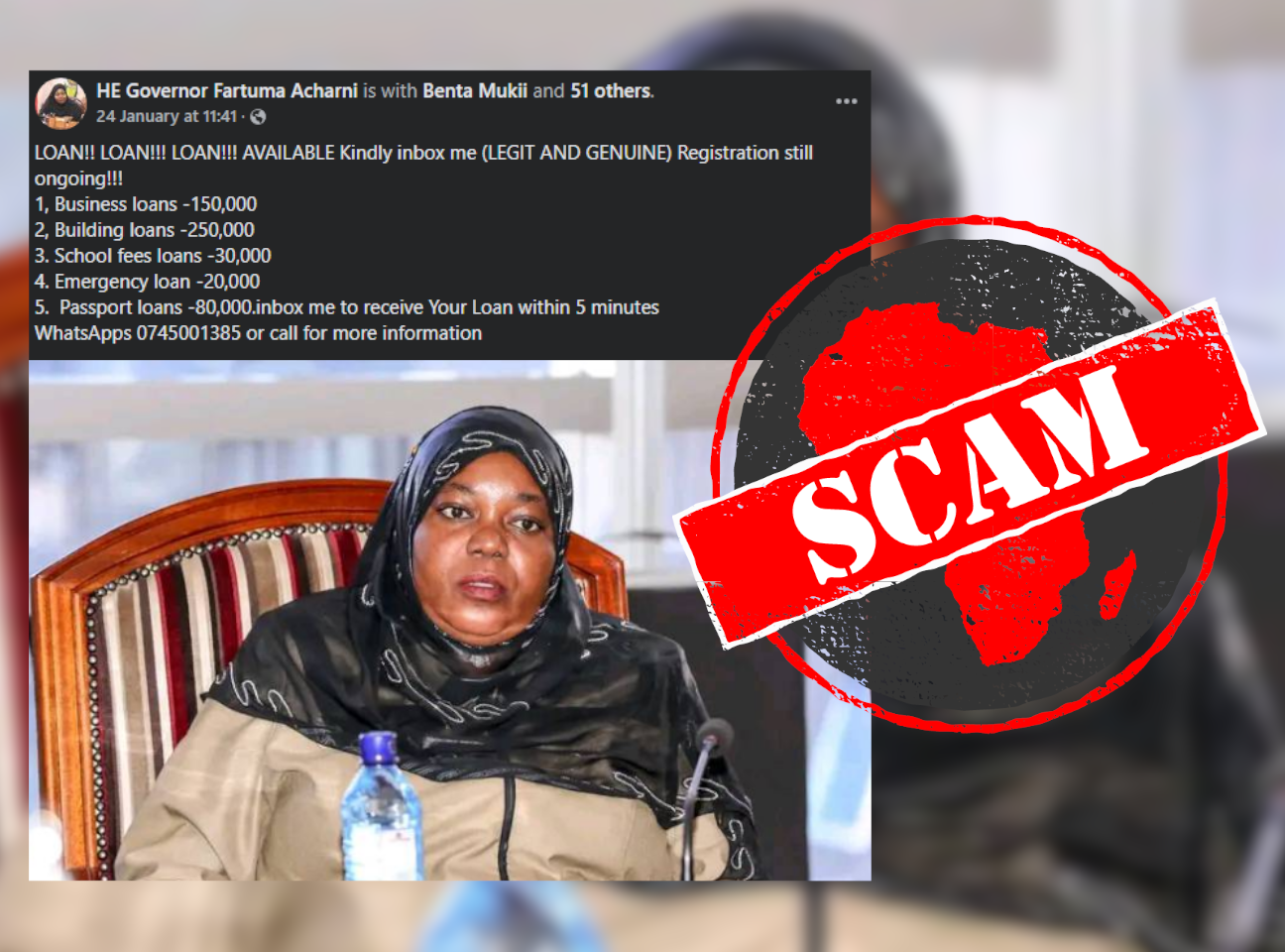IN SHORT: Kwale’s county governor is not giving out loans on Facebook, as this account would have you believe. It is likely on a scamming spree instead.
The Facebook account HE Governor Fartuma Acharni regularly posts loan offers.
The account uses a title and name similar to that of the governor of Kwale county, Fatuma Achani. She is also featured in the profile picture.
The southeastern coastal Kenya county of Kwale is one of 47 in the country, each run by an elected governor.
“LOAN!! LOAN!!! LOAN!!! AVAILABLE Kindly inbox me (LEGIT AND GENUINE) Registration still ongoing!!!1, Business loans -150,000, 2, Building loans -250,000, 3. School fees loans -30,000, 4. Emergency loan -20,000, 5. Passport loans -80,000. inbox me to receive Your Loan within 5 minutes WhatsApps 0745001385 or call for more information,” reads one of its ads posted on 24 January 2024.
In some of its posts, the account claims that the loans are from Inua Jamii, a Kenyan government programme that provides cash grants to poor and vulnerable people. “Inua Jamii” is Kiswahili for “uplift the community”.
To get the loan, the account asked users to provide their full name, phone number, ID number, location and the amount they needed.
The account and its offers have been flagged by Facebook to fact-checkers as potentially fake. But are they? We checked.

Imposter account
The first clue that this is a fake account is that Achani's name is misspelled - her name is “Fatuma Achani”, not “Fartuma Acharni”. Its posts also contain grammatical errors. Poor spelling is often a sign that an account or page is fake.
The account sometimes claims that the loans are from Inua Jamii, but the programme has made it clear on its official Facebook page that it doesn't give loans.
“We have warned on several occasions Inua Jamii does not issue loans. Do not be conned into sending cash to any number in the name of processing fees,” the government programme cautioned in April 2023.
Achani’s official Facebook page has over 15,000 followers. It features posts about her daily activities and whereabouts.
Her page makes no mention of any loan offers and publishes well-written messages without careless grammatical errors.
Report any suspicious Facebook posts by clicking on the three dots in the top right corner of the post and selecting “report post” from the drop-down menu.
Republish our content for free
For publishers: what to do if your post is rated false
A fact-checker has rated your Facebook or Instagram post as “false”, “altered”, “partly false” or “missing context”. This could have serious consequences. What do you do?
Click on our guide for the steps you should follow.
Publishers guideAfrica Check teams up with Facebook
Africa Check is a partner in Meta's third-party fact-checking programme to help stop the spread of false information on social media.
The content we rate as “false” will be downgraded on Facebook and Instagram. This means fewer people will see it.
You can also help identify false information on Facebook. This guide explains how.




Add new comment